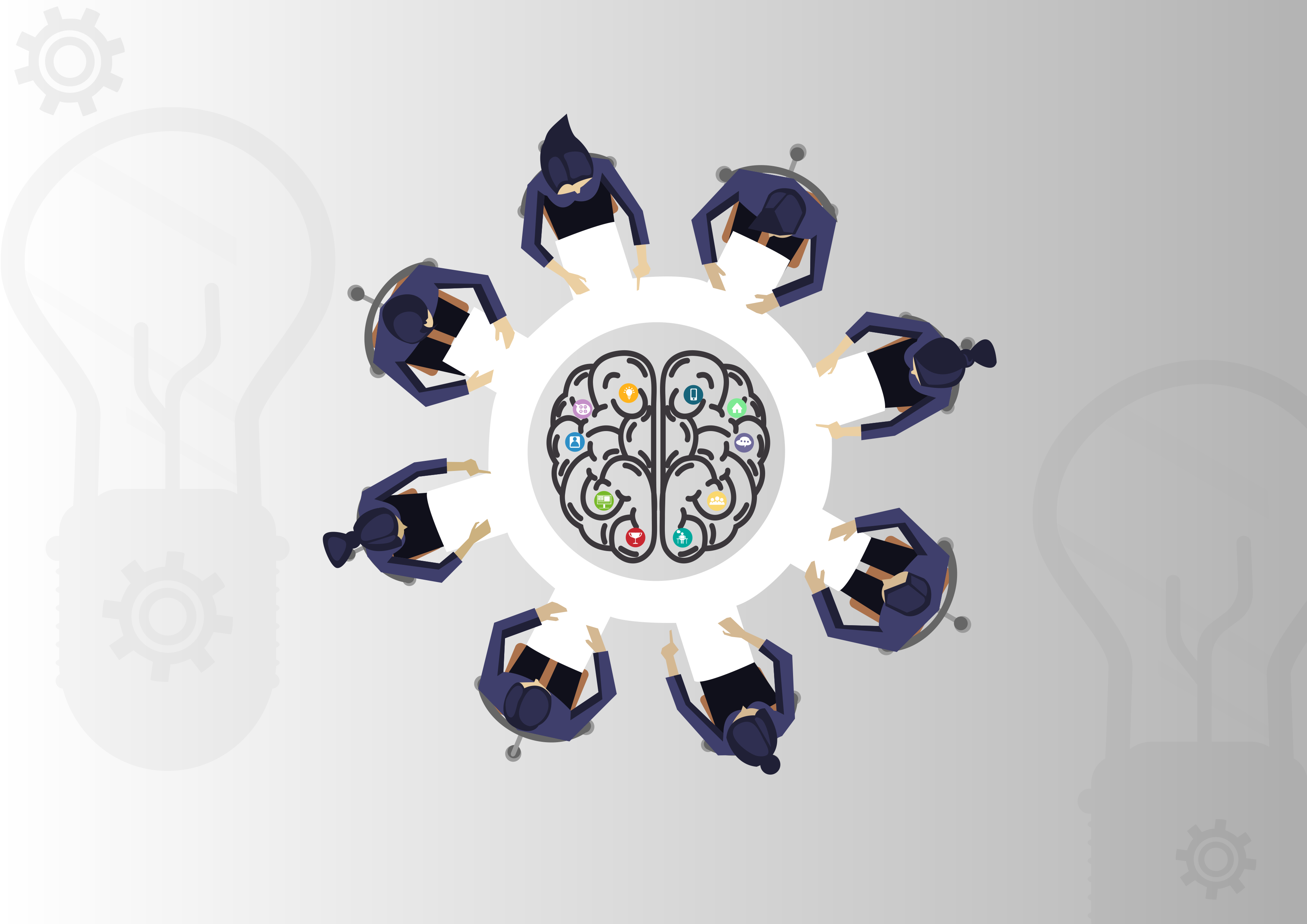
Experiential learning is learning through experience and it gained significance as the learners are asked to reflect on their experience. Hands-on activities are promoted in experiential learning. Learners become more dynamic in experiential learning than the traditional didactic classroom, the trademark of passive learning.
Kolb’s experiential learning Cycle model is fundamental, foundational and most influential.
Though there are many experiential learning models have been proposed, mostly they have the concept of experiencing, sharing, processing, generalizing and applying. We developed our concept of experiential learning after studying several models. For example, the following model influenced us as we attach emphasis on analyzing, evaluating and improving in addition to observing, experiencing and applying.
We give examples to observe, engage participants in hands on experience, allow them to go through the process of analysis by creating their own content, apply and experience what they created in their classroom, share and reflect on their experience and allow the learning community to discuss and evaluate others’ work to improve.

We have developed a simple model of Experiential Math learning as follows.
For effective teaching, teachers should have both subject knowledge and pedagogical knowledge. The intersection of these two will result in effective learning. To have higher effective learning, the overlapping of subject and pedagogical knowledge should be more.
When the teacher knows what is Math and how it should be delivered, effective teaching takes place. Currently experiential math learning is just like a spot as even in with in effective teaching.
Our course aims to expand this tiny spot to a larger circle, providing an atmosphere of experiential learning through which the learners develop Bloom’s high order thinking skills of analyzing, creating and evaluating.


Educators have been promoting experiential learning for a long time. They insist that learning should be an experience not just informative. The aim of education should be to cultivate the desire for learning. John Dewey was one of the earliest educators who proposed experiential learning.
“Give the pupils something to do, not something to learn; and the doing is of such a nature as to demand thinking; learning naturally results” - John Dewey(1916).
The role of a teacher is to design an environment for her/ his students to create their own knowledge rather than imparting readily available knowledge. Dr. Radha krishnan, one of the greatest teachers of our times once said, “ The true teachers are those who help us think for ourselves.” Our course empowers teachers to provide an experiential learning environment for their students.
In the twenty-first century, schools focus on nurturing every child to reach his or her own full potential. Teachers are expected to develop students’ skills to prepare them as successful lifelong learners. In response to the ongoing global educational reforms, teachers in schools need to teach mathematics not just as one of the major subjects but as a tool to develop thinking skills of students by engaging them through meaningful activities. Activity -based learning has also been advocated as it is student- centred and promotes active participation of students in the learning process.
This online course aims to help teachers to acquire the expertise to enhance the quality of mathematics teaching, to make mathematics learning more meaningful and experiential. Students need to be equipped with the ability to apply the acquired mathematical knowledge in novel conditions as everyday life situations are increasingly mathematical such as making the right decisions in our purchasing options, mobile plans, investments etc.


Experiential Math Solutions is an educational consulting company with the intention of providing training mostly online and on request at various physical sites, for mathematics teachers with instructional materials which can be implemented with ease and confidence in their classrooms.
Experiential Math Solutions aims to help teachers to develop their students’ confidence in learning mathematics, to make their students value and enjoy learning mathematics, to assist students to pursue different approaches to solve problems, to think and reason logically while solving problems and most importantly to acquire the skills to apply the mathematical knowledge in real life situations.
The primary aim of the Experiential Math Solutions is to enable the teachers to design and pose mathematical problem solving questions in their classroom teaching. According to the Singapore Mathematics Curriculum framework, it is expected that students, with the help of problem solving skills, can use their mathematical knowledge and skills in novel and real life situations.

Experiential Math Content Creator certification, the first online course by Experiential Math Solutions offers five modules which can be studied at own pace and at a convenient place. The lessons start from the basic level so that every participant can understand and practise what he or she has learnt. Hands on practices are included at an appropriate level. Participants are encouraged to discuss on a forum, submit their work online and comment on others’ works as creation and evaluation form higher level of Bloom’s taxonomy. Questions are asked at each level for self testing and some of the assignments are practical ones, to groom the participant to design creative questions for their classrooms to improve their students’ mathematics learning.
After attending our one day workshops on problem solving, the participant teachers got excited about the materials that were presented. Hundreds of teachers who attended our workshops in some of the major cities in Tamil Nadu commented on both the quality and practicality of the materials used in the workshop. On realizing the need to equip all teachers with the skills to incorporate experiential learning activities in their mathematics teaching to enhance the students’ thinking skills, this online course is designed at a very nominal fee so that even teachers in rural places and aspiring teachers get an opportunity to participate and get benefited. With such a desire and ambition, Experiential Math Content Creator course is designed with laborious efforts but aiming at rewarding results of empowering teachers. To provide teachers an opportunity to read research articles related to teaching, this course cites relevant literature.
Participants can have a better understanding of the attributes of good mathematics teaching.
Participants learn to value the significance of asking questions and how to ask better questions.
Candidates master how problem solving questions can be incorporated in daily mathematics teaching.
Teachers learn to stimulate students’ interest in learning mathematics by engaging them in thought provoking activities
Participants learn to create their own high order thinking questions in real life situations
Candidates not only design but also learn to review and evaluate others’ work.
As throughout this course participants are introduced to research papers relating to the topics discussed, participants’ interest in math educational research is kindled.
